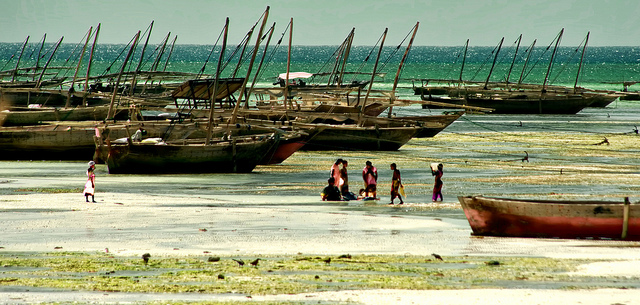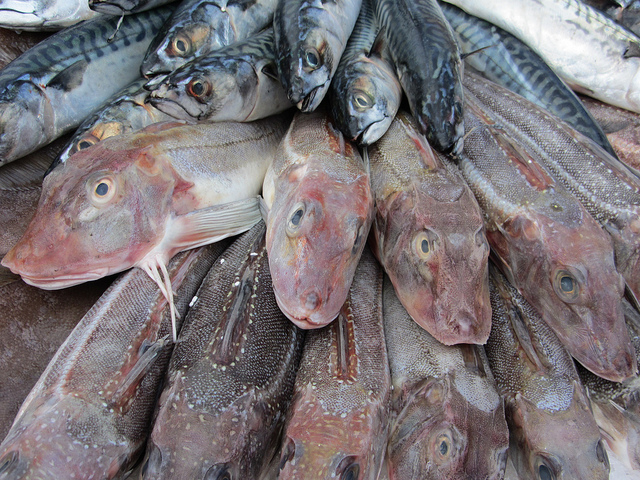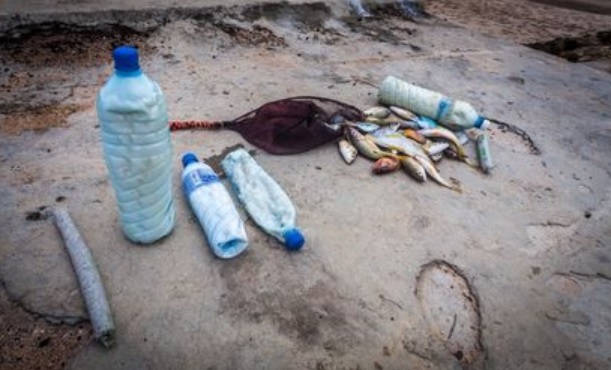
(Photo Credit: giampiero Ridella, via Flickr)
Near the coast of Tanzania it’s not uncommon to hear large explosions reverberate across the water.
They’re caused by ‘blast fishing’ — an all-too-common practice where fishers throw explosives into the ocean to kill swaths of fish, scooping them up as they float to the surface, while many sink to the bottom, wasted.
But an organization called the Indian Ocean Commission (IOC) is trying to end the practice, among other forms of illegal fishing. In March 2016 the IOC received the top global prize for their SmartFish program, which is an effort to curb illegal, unreported and unregulated (IUU) fishing in the Indian Ocean.
The award – named the “Stop IUU Fishing Award” – was given out by the International Monitoring Control and Surveillance Network based in Washington, DC.

The SmartFish program includes over 20 countries in eastern and central Africa and is funded in part from a $25 million contribution from the European Union. Based in Mauritius and with over 30 years of experience with coastal environmental issues, the IOC developed the project to register and license fishing boats.
Once boats are registered and inspections are initiated, it’s harder for them to continue illegally fishing — especially by fish blasting.
It also saves a lot of money for fishers and local governments.
It is estimated that US $10-25 billion is lost annually from IUU fishing. According to the Food and Agriculture Organization (FAO), IUU fishing accounts for 15 percent of global annual catch with 26 million tonnes lost a year.
The FAO believes ending IUU fishing is a crucial endeavor.
“IUU fishing undermines national and regional efforts to conserve and manage fish stocks and, as a consequence, inhibits progress towards achieving the goals of long-term sustainability,” it says on their website.
Defusing the Blast Fishing industry

Explosives used in blast fishing (Photo from IOC website)
According to the IOC, blast fishing increased in Tanzania after the year 2000. Up to 50 blasts a day could be heard from the shores of the country’s largest city, Dar es Salaam.
However, since 2011 the government of Tanzania — in coordination with Smartfish — conducted multiple interventions along the coastline, making numerous arrests and confiscating hundreds of kilograms of explosives.
While progress is being made, many hurdles still exist.
“We have been working to combat illegal fishing in East Africa over the past 4 years,” says Marcel Kroese on the IOC website, and a SmartFish MCS Key Expert. “However, the problem of blast fishing is far more complex than previously expected in Tanzania.”
A growing awareness
Several high profile cases of illegal fishing have recently made it into the media, increasing awareness about the problem.
In February, two of the last poaching vessels from the renowned ‘Bandit 6’ were finally caught: the Kunlun in Senegal, and the Viking in Indonesia. The Spanish-owned ‘Bandit 6’ roamed the waters of the global south for years, illegally catching Patagonian toothfish.
In March, the Indonesian government blew up the Viking and sank it, capturing sensational footage in this video.
Then, a few days later, Argentina’s navy shot and sank a Chinese fishing vessel it says was illegally fishing in their waters. China has called for an investigation of the incident.
In 2009, the FAO brokered a treaty between 91 member countries that would help ports restrict incoming boats engaged in illegal fishing. Named the “Agreement on Port State Measures to Prevent, Deter, and Eliminate Illegal, Unreported, and Unregulated Fishing,” it was the first ever global treaty focused specifically on IUU fishing.
This agreement has now been ratified by around 20 countries (including the USA), and will enter into force once 25 countries have ratified or approved the agreement.

